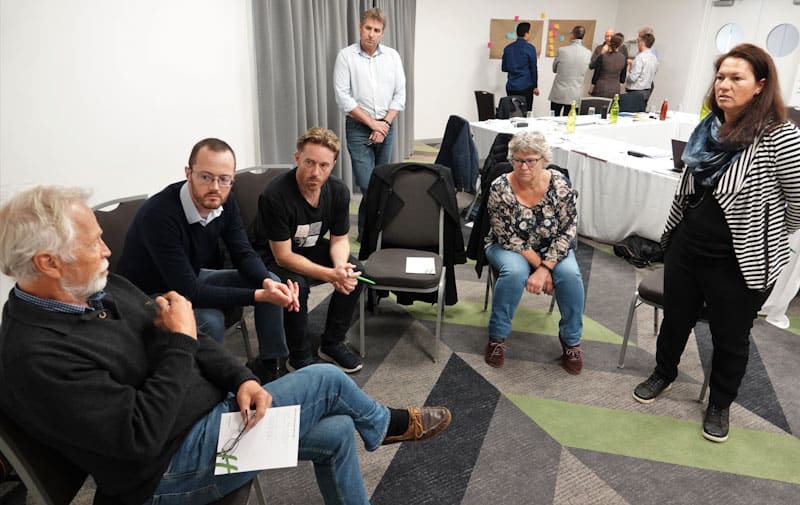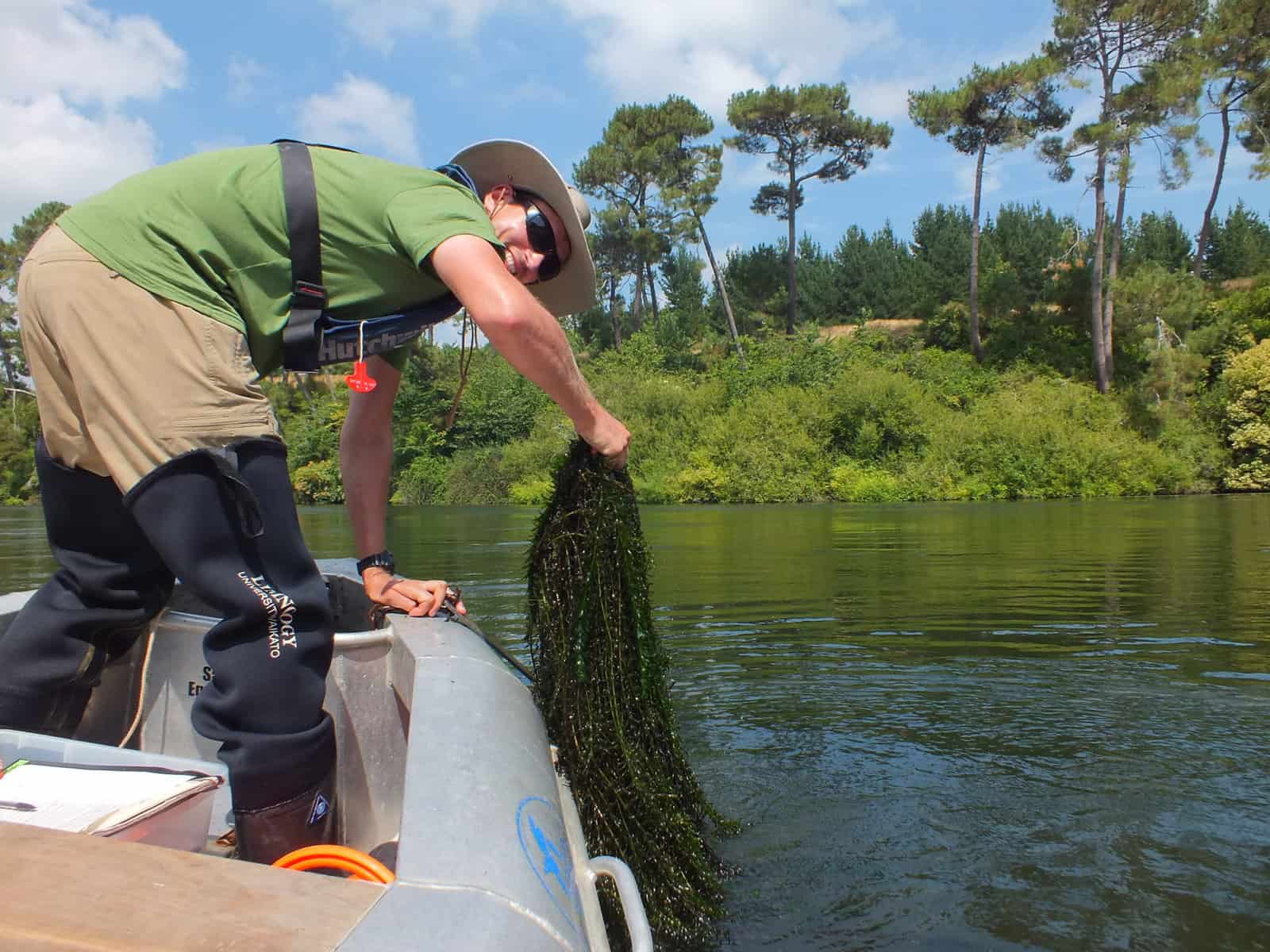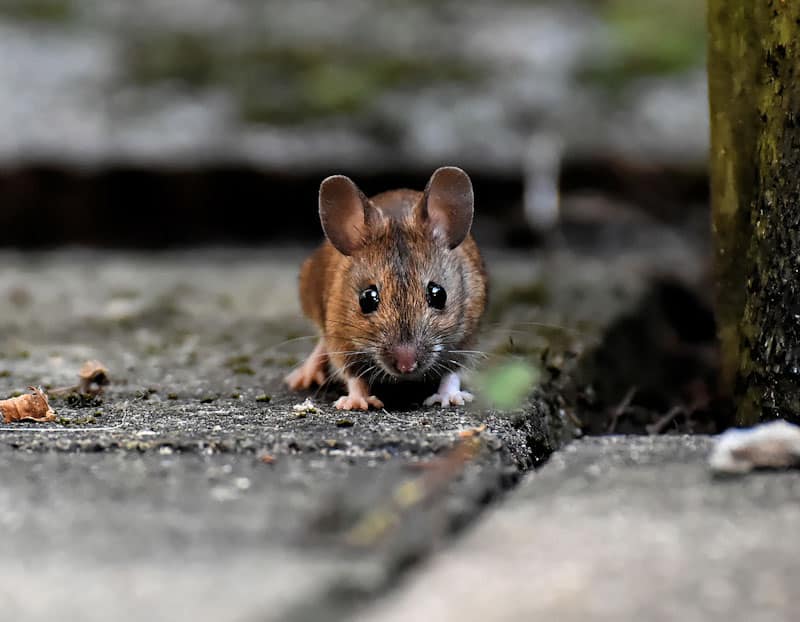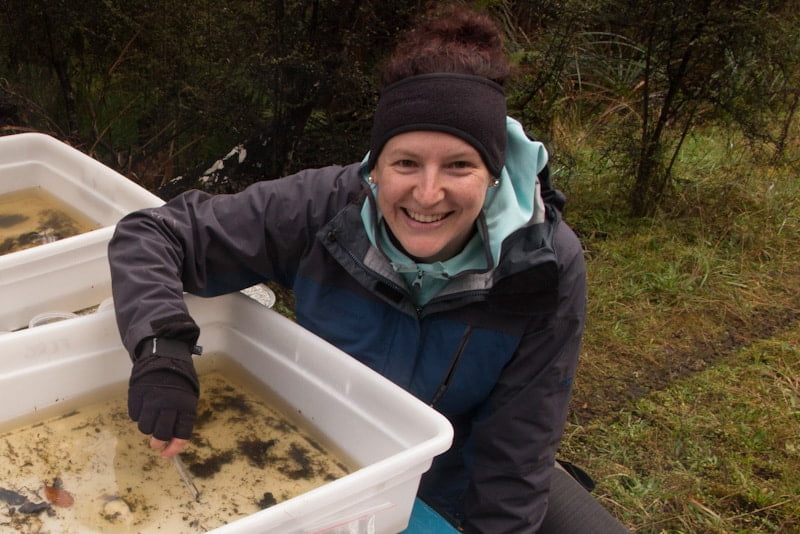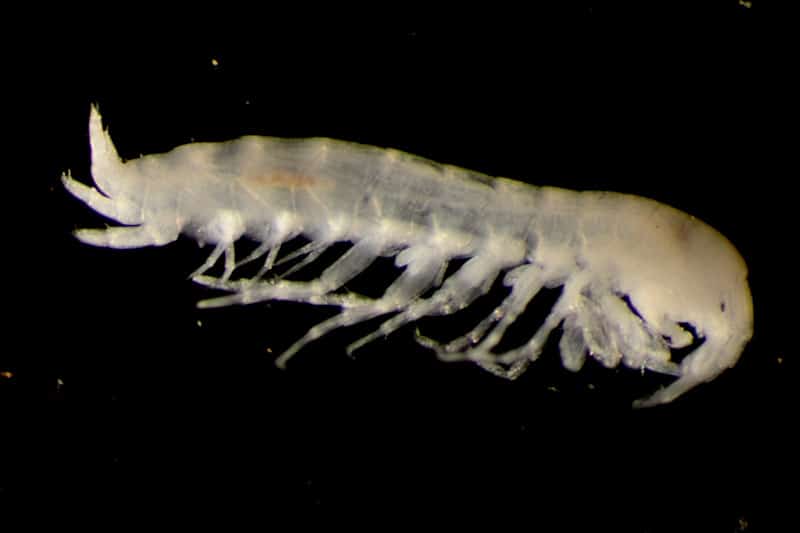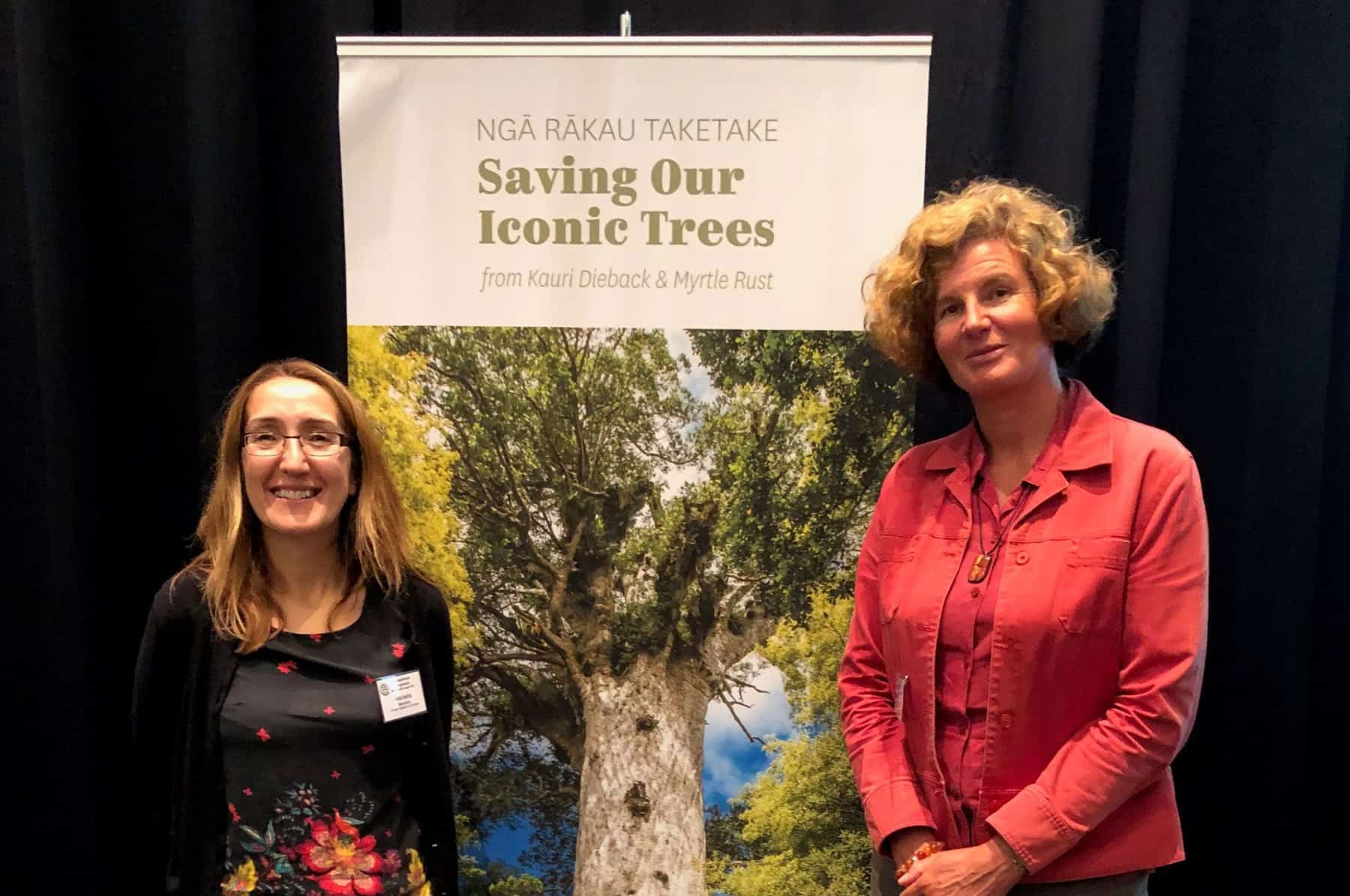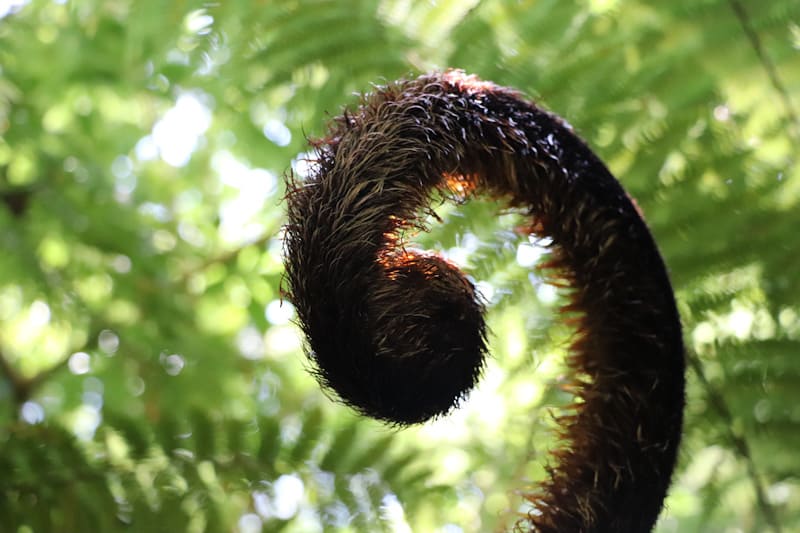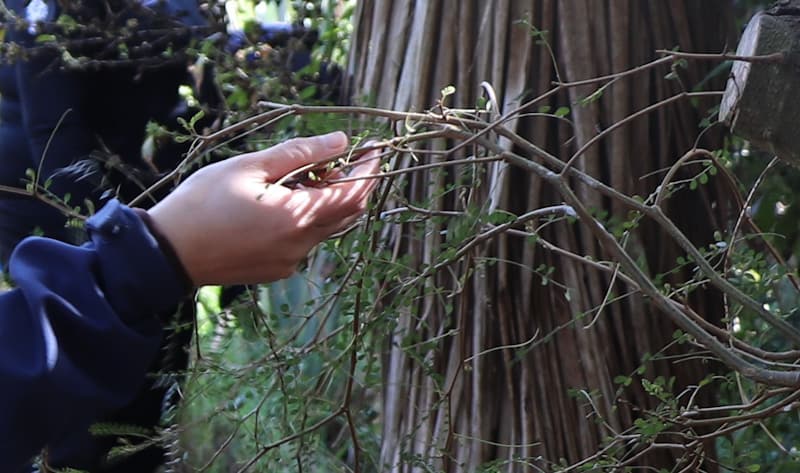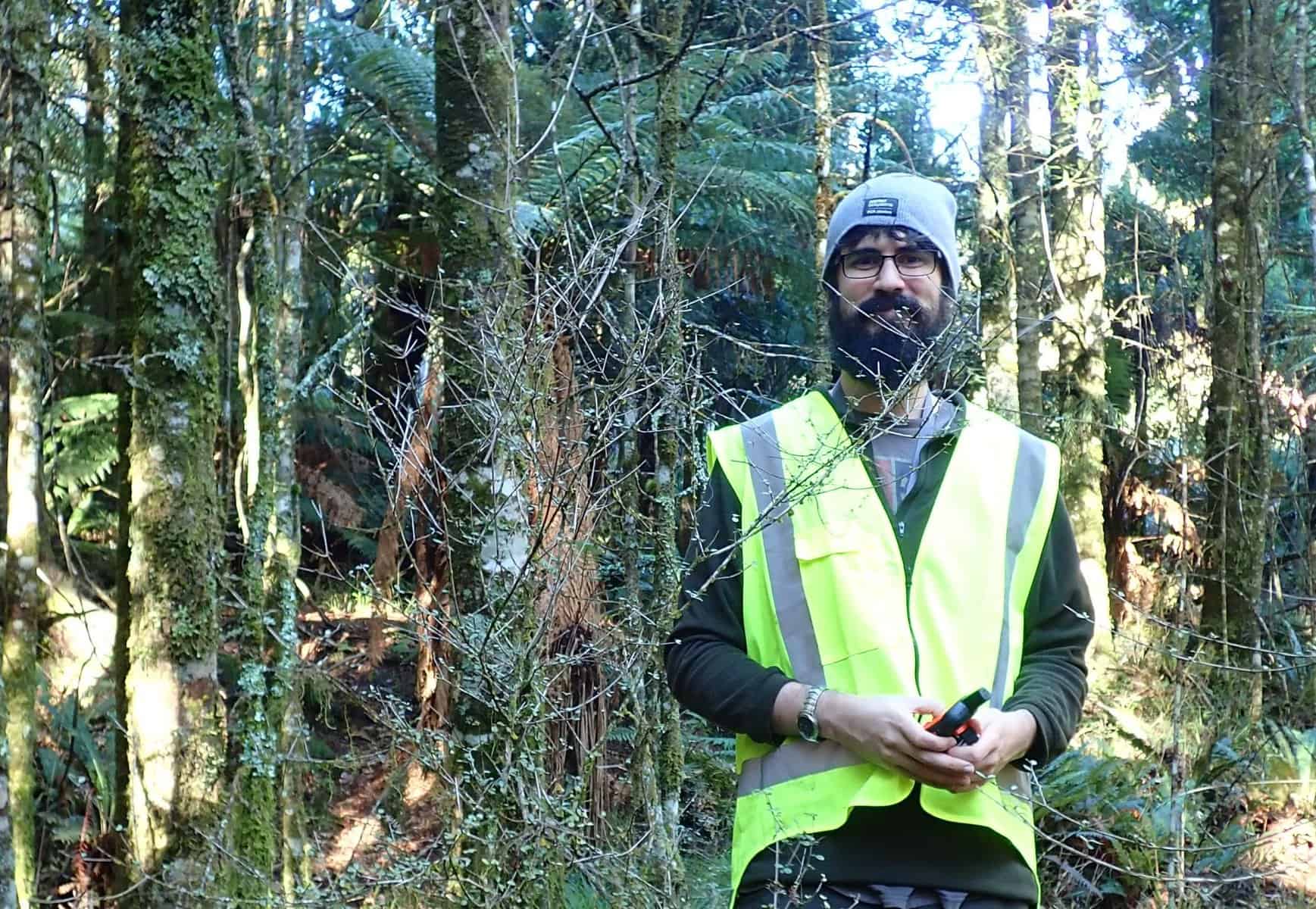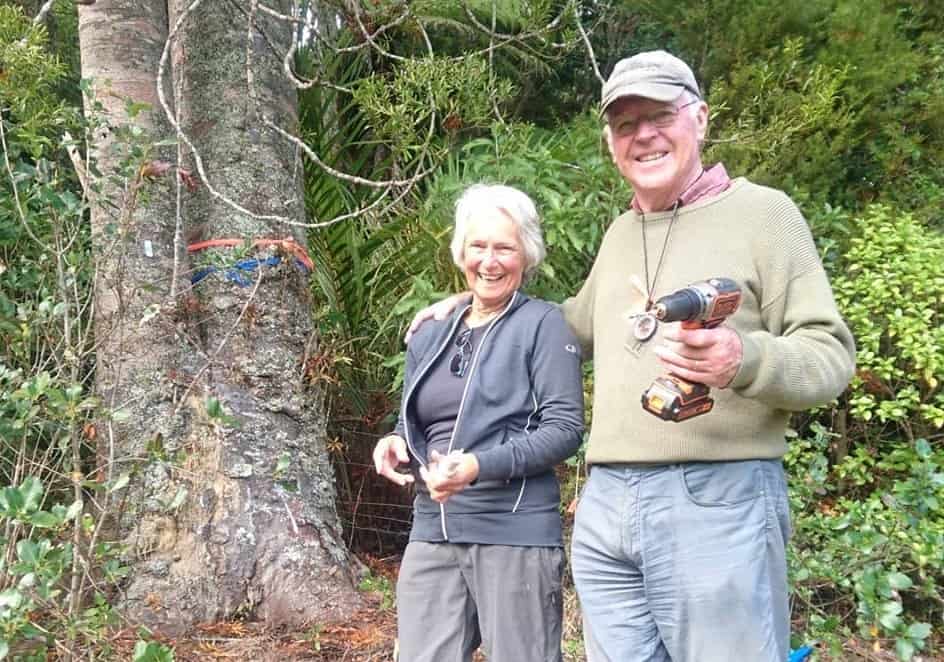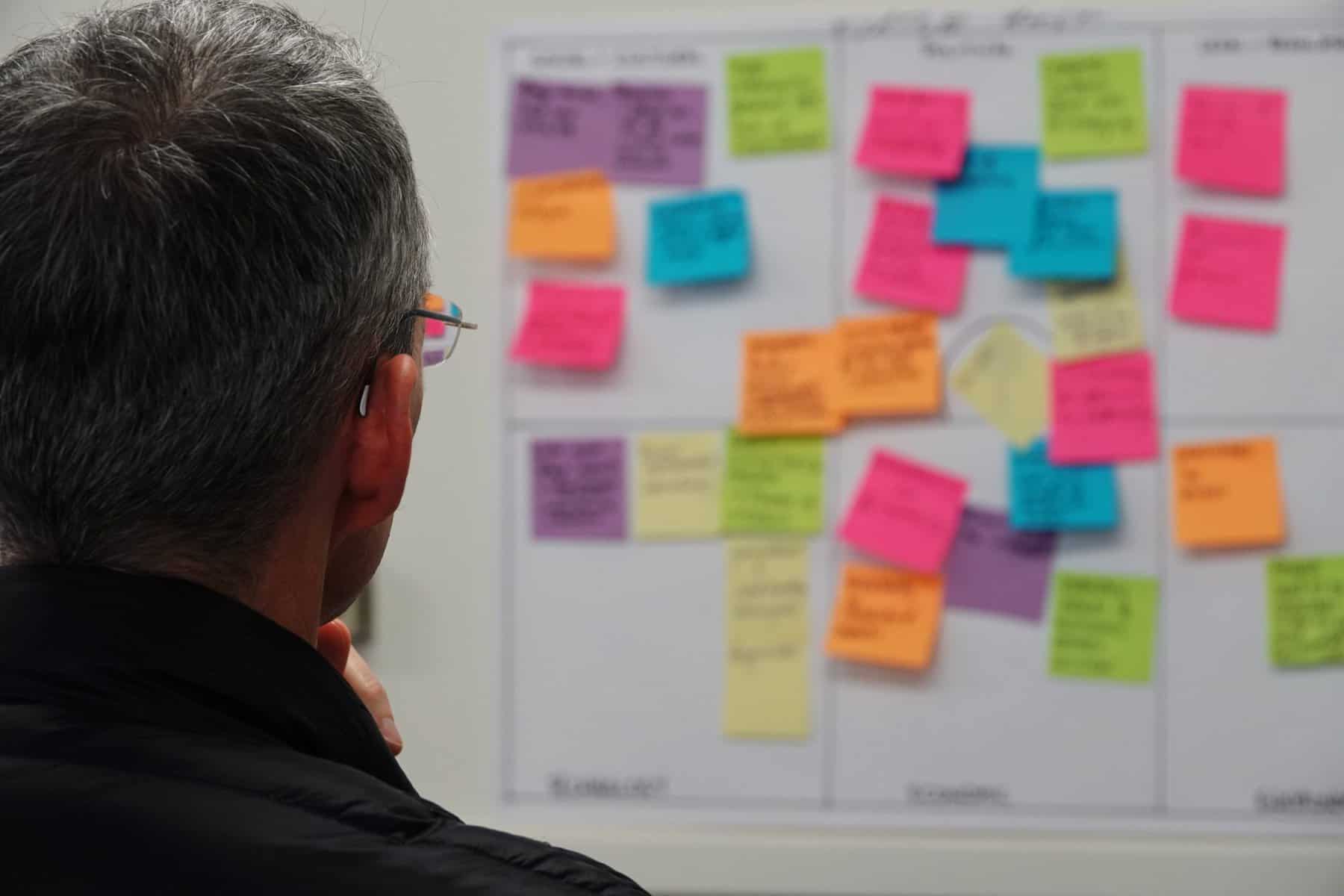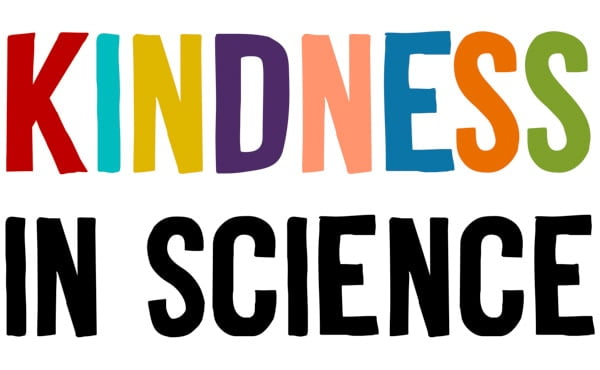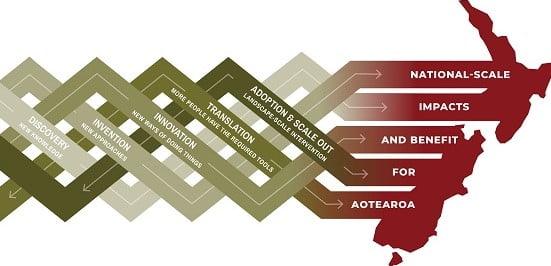Four new projects are underway within Ngā Rākau Taketake that address key science priorites identified in the kauri dieback and myrtle rust strategic science plans.
Category: News
NRT scoping group making great progress
The Ngā Rākau Taketake (NRT) scoping group pitched their Investment Prospectus to a ‘dragons den’ earlier in the month, receiving lots of positive and constructive feedback.
The freshwater mussel housing crisis: eviction by invasive weeds?
University of Waikato PhD candidate Tom Moore investigates the housing crisis of taonga species kākahi.
Small mammals in the pest-control spotlight
We still have a lot to learn about the fundamental ecology of some pest species that aren’t included in the “Predator Free 2050” efforts, says a Manaaki Whenua researcher.
Early career leads pay off
Early career researchers are normally associated with uncertainty: short-term contracts, a need for experience, but few opportunities to get any.
Endemic groundwater species stay close to home
Many of New Zealand’s groundwater species are “short-range endemics” – being unique species restricted to areas as small as a single catchment.
Stage 2 scoping group timeline
We’ve almost completed the second round of scoping meetings, read on for more detail . . .
Risk of Phytophthora highlighted at dedicated symposium
Kauri Rescue project lead Dr Ian Horner (Plant & Food Research) says fifteen years ago this would never have been possible. “No one would have dreamt of holding a Phytophthora symposium as no one would have shown up!” New Zealand is now home to a number of Phytophthora experts, trained or brought in to respond to […]
Priority research investment: Māori-led research
Social-ecological systems are a crucial element in the long-term preservation of our taonga species and ecosystems, so our aim is to build on existing relationships and research to develop expertise in this space. This priority investment will look at how we can incorporate mātauranga Māori (Māori knowledge) into the protection of both kauri and Myrtaceae […]
Priority research investment: Surveillance
We need to empower communities to map and monitor these foreign pathogens and their impacts, using an overarching surveillance framework. New Zealand already has one of the best surveillance frameworks used to manage a disease of national importance: the ‘proof of freedom’ framework for bovine tuberculosis (Tb). This framework is regarded as one of the […]
Taking a look at the sex life of myrtle rust
The invasive pathogen infects native New Zealand trees in the Myrtaceae family, such as pōhutukawa and mānuka, causing dieback and potentially death. It was first detected in New Zealand in March 2017 and is now prevalent throughout the upper North Island, being recorded as far south as Greymouth. Researcher Dr Michael Bartlett says we need […]
Kauri Rescue going strong after new lease on life
Initially supported by the BioHeritage Challenge, Kauri Rescue was set up to help treat kauri dieback on private property during 2017 and 2018. During that time they had over 500 enquiries from the public and project manager Dr Mels Barton says they were able to create kauri ambassadors within the community. “Supporting landowners with large […]
Scoping group members
We have brought together some of the brightest minds from around New Zealand to form our scoping groups
Kindness in Science
For as long as anyone can remember Western science has been punctuated with horror stories of cut-throat competition and heavy-handed criticism. Frustrated with this ‘winner takes all’ approach, in 2016 a group of New Zealand scientists asked if kindness could lead to better scientists and better science. This Kindness in Science (KiS) movement has since gained […]
Stage One scoping group timeline
Many groups have already begun the scoping process. If you would like to register as being a stakeholder that members of a particular scoping group can contact for external input, please email The schedule of completed and planned first workshops is: May Ngā Rākau Taketake Rapid Implementation Group June Early Career Group Ngā Rākau […]
A guide to BioHeritage scoping groups
1. What are scoping groups? Our scoping groups are made up of 8-10 people who represent a range of relevant research expertise, aligned disciplines and knowledge systems (as much as practicable). We’ve chosen people who have a variety of backgrounds and work experience, but they bring their own skills and views and don’t represent the […]

